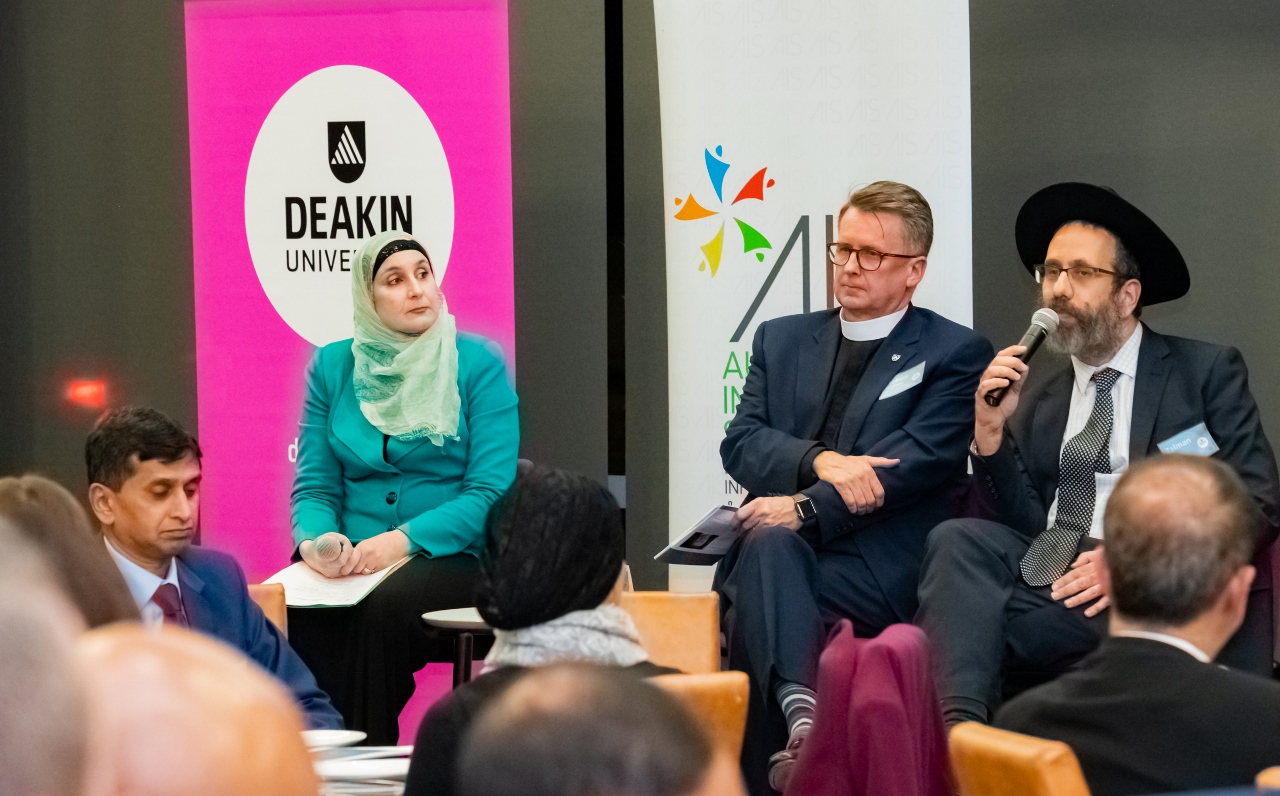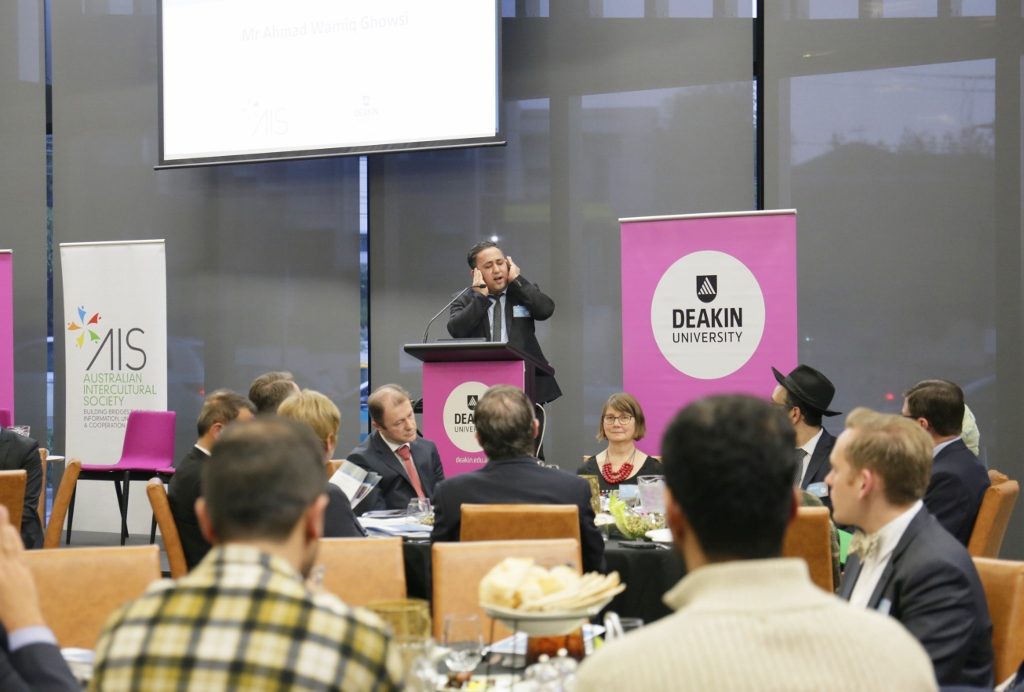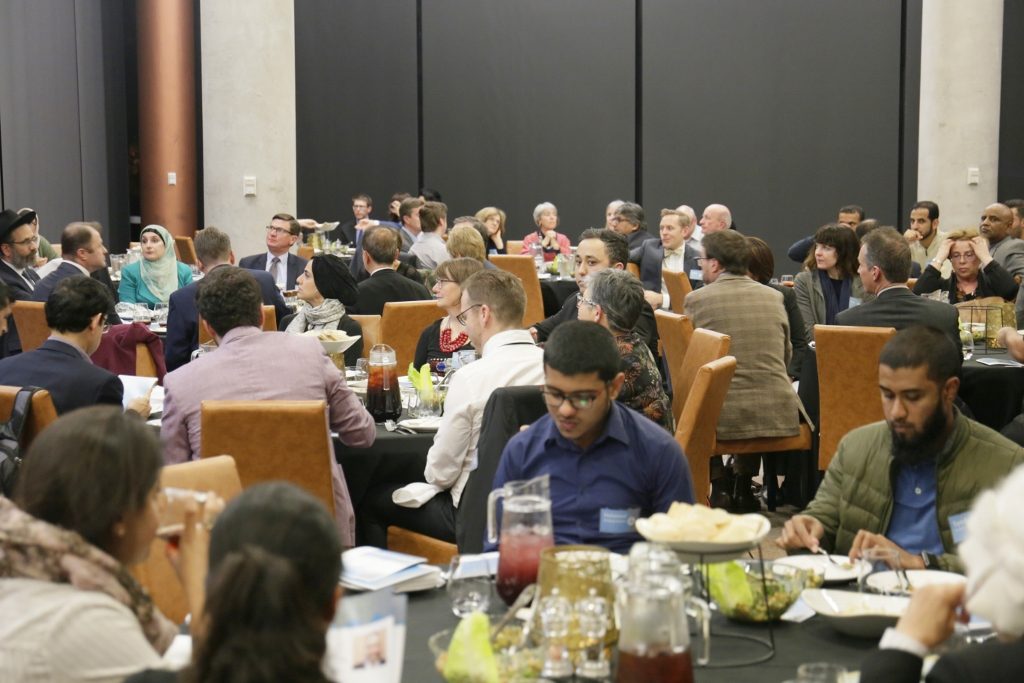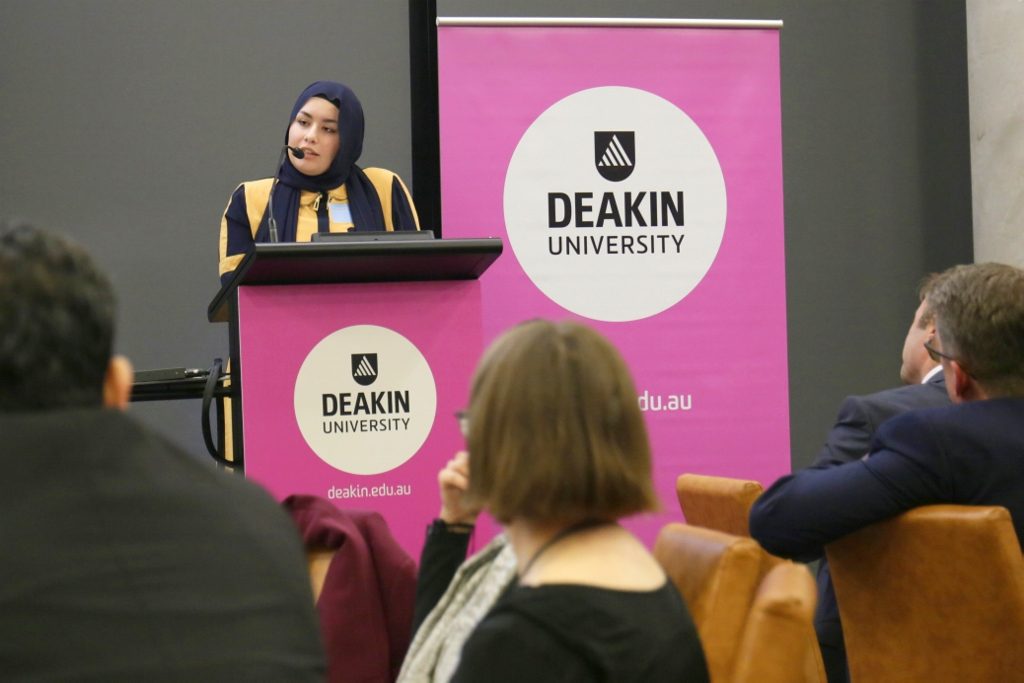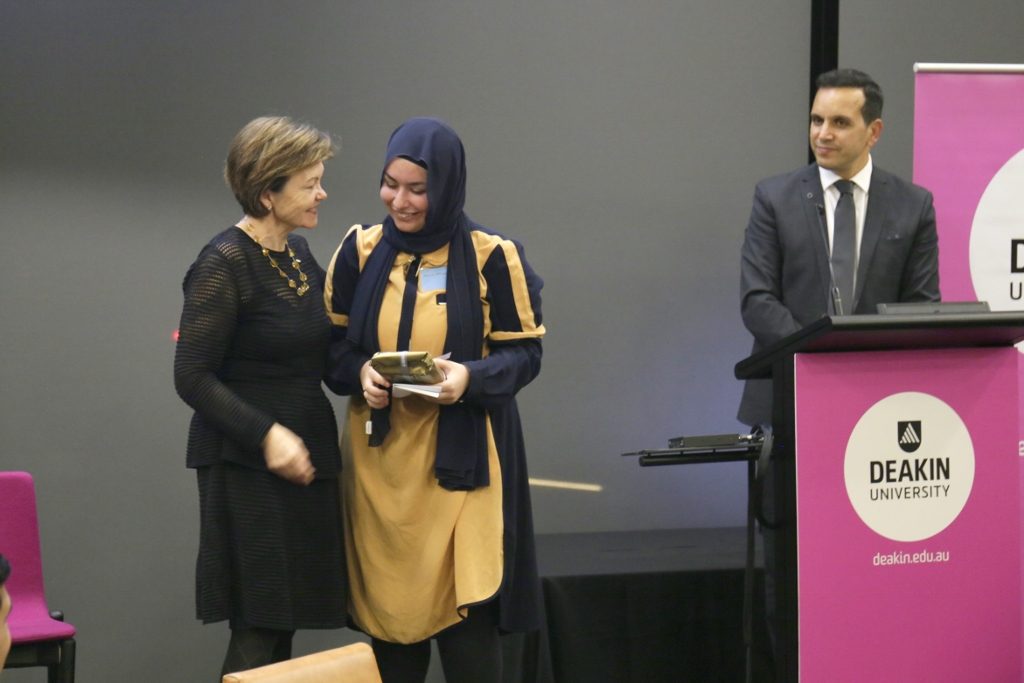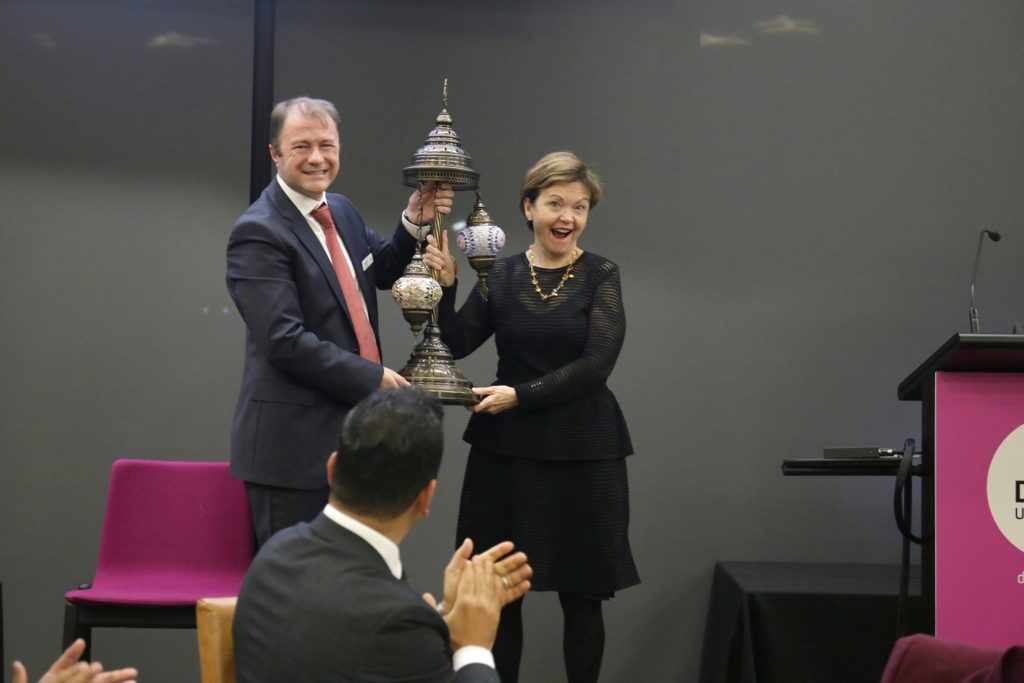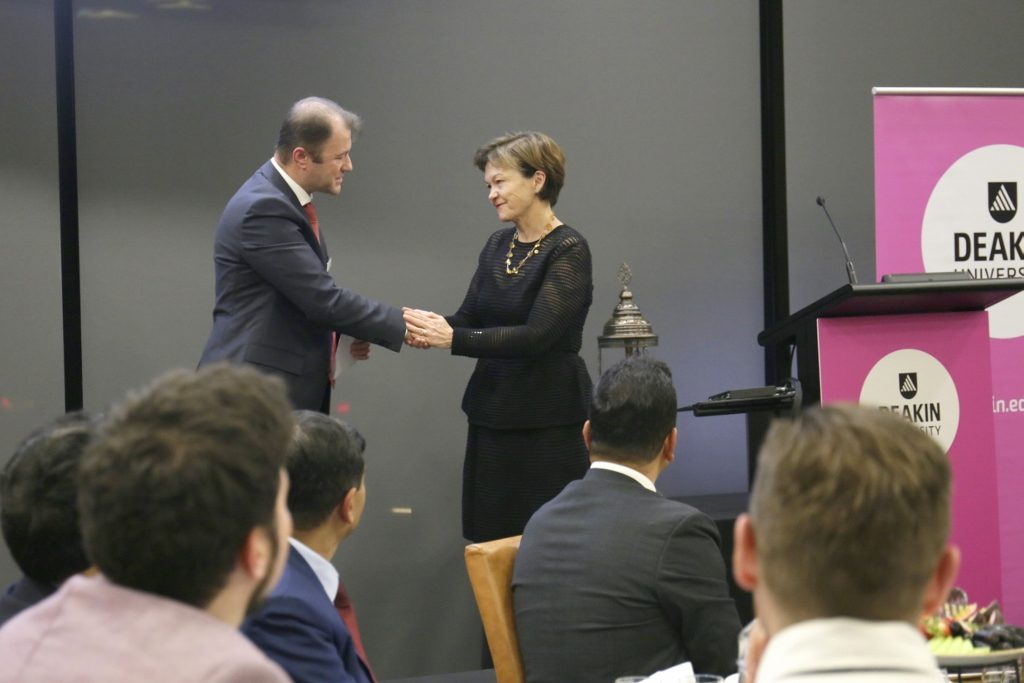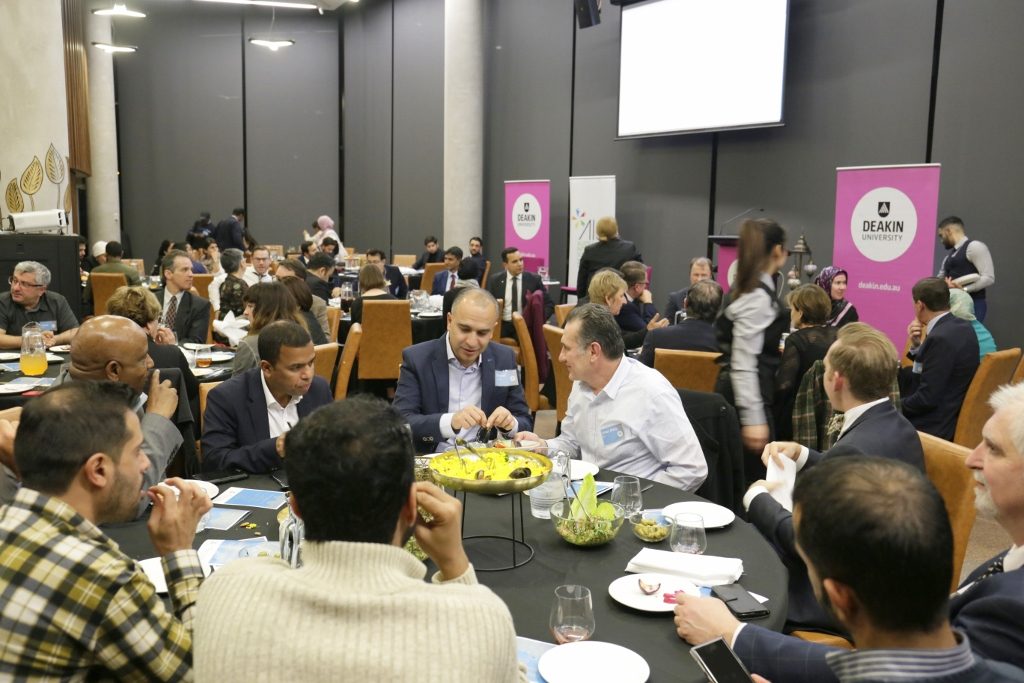Deakin University Iftar 2019
On Thursday the 16th of May 2019, Deakin University hosted their 9th annual Iftar dinner in partnership with the Australian Intercultural Society. The evening was MC’d by Professor Fethi Mansouri and consisted of speeches from the Vice Chancellor, an interfaith panel, a spoken word poem, some introspective comments from audience members and a wonderful meal to break fast for Ramadan.
Prof Mansouri began the evening with an acknowledgement of the importance of dinners such as these, stating “the iftar dinners have been an extremely important initiative pioneered by the Australian Intercultural Society and embraced wholeheartedly by a lot of australian businesses, universities, governments, community organisations, and many other sectors of society”. He highlighted the vast array of community members that participate and have their perspectives changed with every event hosted by AIS.
Following introductions, Ahmad Wamiq Ghowsi began the reciting of the Quran as well as the call to prayer, which was followed by a breaking of the fast.
The Vice-Chancellor, Prof Jane den Hollander AO then took the stage to address her community and recognising the Australian Intercultural societies attempt in “establishing and promoting cultural dialogue and cohesion in Australia’s diverse multicultural communities”. Unfortunately, upon her retirement, this was her last Iftar dinner with Deakin University, however she made a request of the university and its community, saying “I hope that you continue to have these events, to meet and to make sure that everyone feels included. And that everyone leaves with optimism for the future and with a sense of belonging to a family that is interested in who they are”. Her speech was followed by a panel discussing how to overcome hate speech within community. The panel comprised leaders in the interfaith scene including Ms Sherene Hassan (Director, Islamic Museum of Australia), Rabbi Zalman Kastel (Founder, Together for Humanity) and Reverend Dr Robert Derrenbacker (Dean, Trinity College Theological School).
They spoke of ways to promote both cross cultural and cross faith understanding of each other, all speaking of their own personal connections with God and what their religion means to them. Reverend Dr Robert Derrenbacker spoke of the community aspect of religion and the problems that arise when you view yourself as an individual of the faith rather than as part of the community as he says :
“There are no individual christians, there is a community of followers of Jesus. You can call yourself a Christian because you are a member of a community of other Christians… I think one of the ways that we can kind of push back, I think in all three of our religious traditions, is rediscovering, reapplying and allowing to rise up to the surface this notion that is deeply rooted in our religious traditions about being a member of a community, being a member of a family, as opposed to seeing ourselves as individuals or as opposed to seeing others as a group of individuals.”
Sherene Hassan followed this by discussing her own personal connection with God and how her religious affiliation gets her through the day. She says:
“The only time I get time for myself is when I pray… I get to the point where I feel absolutely mentally, physically, and emotionally overwhelmed, I feel depleted, and when I can take time out and just connect with God and put everything aside. I feel this sense that I am able to relinquish the burden that I have, because, in connecting with God, I understand that I don’t have control over everything. As long as I do my best, that’s okay. And I can let it go, and I need it to nourish my soul and be the best version of myself. And when I find that inner peace with myself I find that that is when i am able to seek peace with others.”
This is a statement that all human beings can relate to, whether religious or not. She stresses the importance of allowing yourself to breathe and acknowledge that there is no set path and you are not in control of the world around you. It is statements like these that truly show we are all alike, stressing that every human being, whether religious or not, needs to be able to step back from themselves in order to not get entirely overwhelmed by the world around us.
The panel continued by discussing the importance of cross cultural empathy. Rabbi Zalman Kastel stated that he believes
“The first step is (about) people actually spending the time to know the other. It takes humility, it takes an openness to the perspectives of the others. Putting aside our sense of what we are entitled to think and say and do and actually experiencing the world through someone else’s eyes.”
Hassan builds off of this by saying “We need to get to know one another, we need to step out of our comfort zone, and I really want to acknowledge the wonderful work of the australian intercultural society in spending over a decade bringing people from different backgrounds together.”
The panel concluded as the floor opened up for comments from the audience. Mr Neil Angus (Shadow Minister for Citizenship and Multicultural Affairs) stated that he
“[thinks] one of the things that’s really impacting our community… is the issue of ignorance. Cause i think if we drive past a church, a mosque, a temple, a synagogue, whatever it is, and we don’t know what’s going on inside, it think it makes us a bit nervous. And so I think the opportunity for us to experience each other’s faith journeys and faith practices can only be a very beneficial thing for each one of us and also for the community”
Following floor statements, Prof Mansouri invited a young student named Aleyna Altinors to recite a spoken word poem that stressed the importance of supporting and encouraging the women in your life, but the message of the poem spanned across all members of society in stressing that we must encourage and support each other as members of a community of human beings. Aleyna’s sign off line was a tribute to Prof Jane den Hollander – “This poem is dedicated to Professor Jane Den Hollander, I need you to know that girls like me look up to you.” to which there was a long applause from the audience recognising the contribution of the Vice Chancellor for the university and community at large.
The moving evening concluded with a speech from AIS executive director Ahmet Keskin as he gave thanks to all who participated in the evening and all who continue to promote a positive and inclusive society every day.

